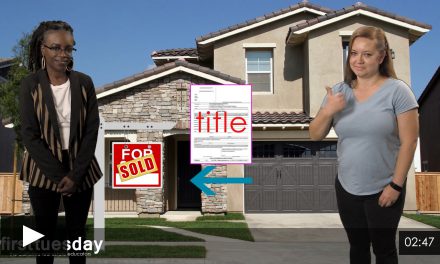This is the first episode in our new weekly video series covering property management principles. This episode covers the duties of a licensed broker hired to manage an apartment complex on behalf of an owner.
When is a DRE license required?
Consider an individual owns and operates income-producing real estate. As the owner-operator, they locate and qualify tenants, prepare and sign occupancy agreements, deliver possession, contract for property maintenance, collect rent, pay expenses and mortgages, serve any notices and file any unlawful detainer (UD) actions to evict tenants.
Does the owner-operator need a Department of Real Estate (DRE) broker license to perform these activities?
No! The owner of income-producing real estate does not need a real estate broker license to operate as a principal. The owner-operator is not acting on behalf of someone else as an agent when managing their own property. [Calif. Business and Professions Code §10131(b)]
On the other hand, if the owner-operator decides to hire an individual to take over the general management of the apartment complex, the individual employed to act as a property manager needs to under most circumstances be licensed by the DRE as a California real estate broker.
A broker has the authority to act as a property manager by virtue of their DRE license alone. There is no special “property management” license or endorsement required under California law.
Performance of services in exchange for a fee requires a license
An individual or corporation is to hold a broker license if they perform or offer to perform any of the following services on behalf of another in exchange for a fee:
- listing real estate for rent or lease;
- marketing the property to locate prospective tenants;
- listing prospective tenants for the rental or lease of real estate;
- locating property to rent or lease;
- selling, buying or exchanging existing leasehold interests in real estate;
- managing income-producing properties; or
- collecting rents from tenants of real estate. [Bus & P C §10131(b)]
An individual employed by a broker to perform any of the above services under their supervision needs to also be licensed by the DRE, either as a broker or sales agent, unless exempt.
A person is not required to have a real estate broker license when they are acting:
- as an attorney performing management as part of their legal services [Bus & P C §10133(a)(3)]; or
- under court appointment, such as a receiver or bankruptcy trustee. [Bus & P C §10133(a)(4)]
These exceptions are usually short-term and refer to specific properties.
A person whose business is advertised or held out as including property management for others needs to comply with the licensing laws. Individuals managing property without a license and without qualifying for an exemption will not be able to enforce collection of the fee they were to receive. [Bus & P C §10137]
Also exempt from licensing is an individual who has been given authority to act as an “attorney in fact” under a power of attorney to temporarily manage a landlord’s property. [Bus & P C §10133(a)(2); see RPI Form 447]
However, a power of attorney may not be used as authority to continuously manage real estate and does not substitute for a broker license.
Consider a landlord who can no longer handle the responsibilities of managing their property due to illness. The landlord grants a power of attorney to a friend to manage the property. The landlord pays their friend for performing property management tasks, including locating tenants, negotiating leases and collecting rent.
After the landlord’s recovery from their illness, they continue to employ their friend to perform these management tasks.
Does the landlord’s friend need a real estate broker license to perform property management tasks on a regular, on-going basis in exchange for a fee, even though the landlord has given them a power of attorney?
Yes! The power-of-attorney exemption may only be used in situations where the landlord is compelled by necessity, such as a vacation or illness, to authorize another person to complete a specific or isolated transaction.
A person receiving a fee for the continuous performance of property management tasks requiring a broker license may not rely on the power-of-attorney exemption to avoid licensing requirements. [Sheetz v. Edmonds (1988) 201 CA3d 1432]
Apartment resident manager exclusion
Apartment building management has special licensing rules distinguishing resident managers from nonresident property managers.
A resident manager is employed by either the landlord or the broker who manages the apartment building or complex. The resident manager lives on the premises as a requirement of their employment.
A resident manager and their employees do not need a real estate license to manage the apartment complex. [Bus & P C §10131.01(a)(1)]
However, a resident manager of one apartment complex is barred from being the property manager of a separate apartment complex unless they are licensed. In managing two complexes, the resident manager becomes a nonresident property manager of one complex. Thus, they need to be licensed. [Bus & P C §10131(b)]
Editor’s note – The duties of a resident manager will be fully covered in a future episode of this series.














